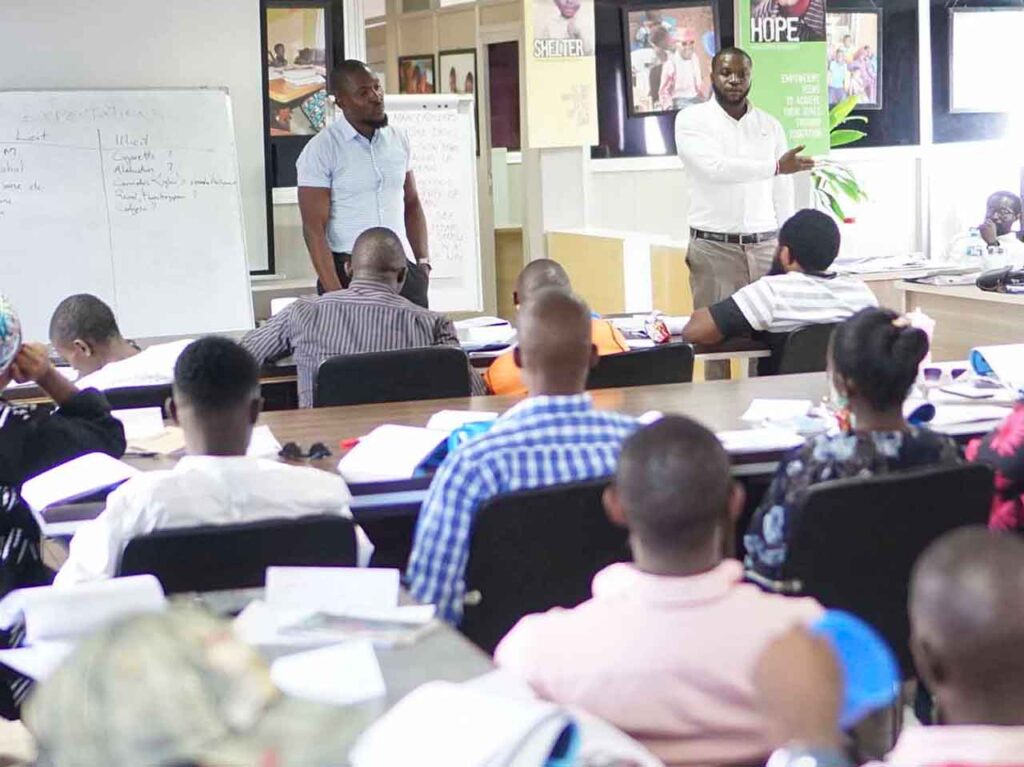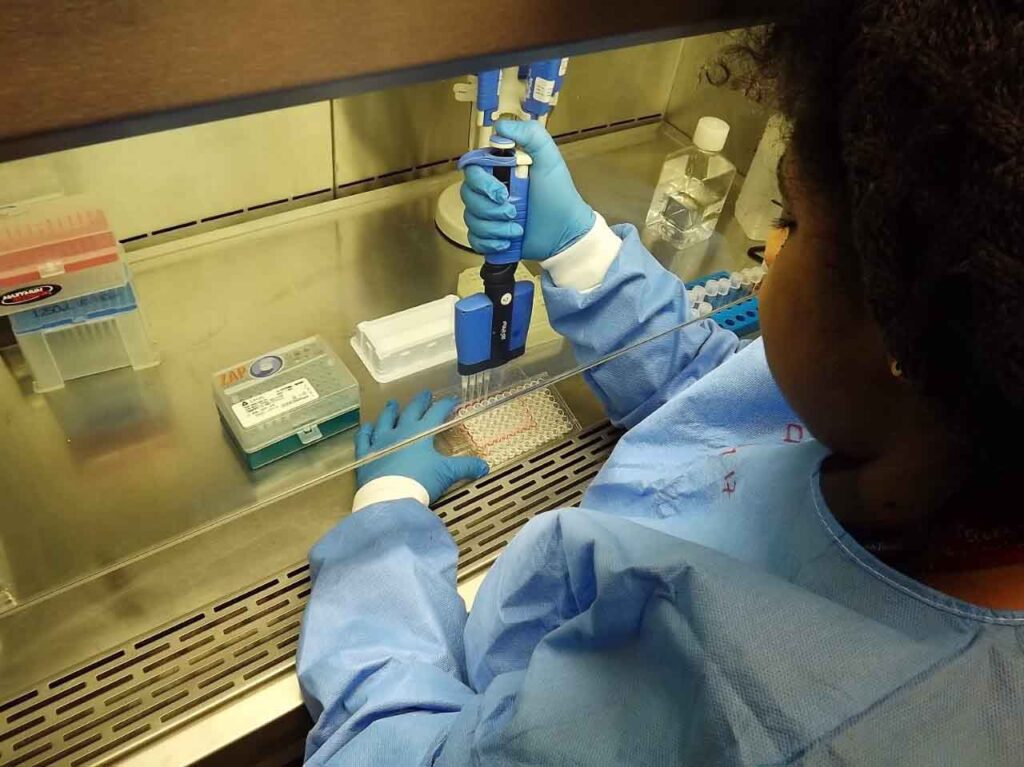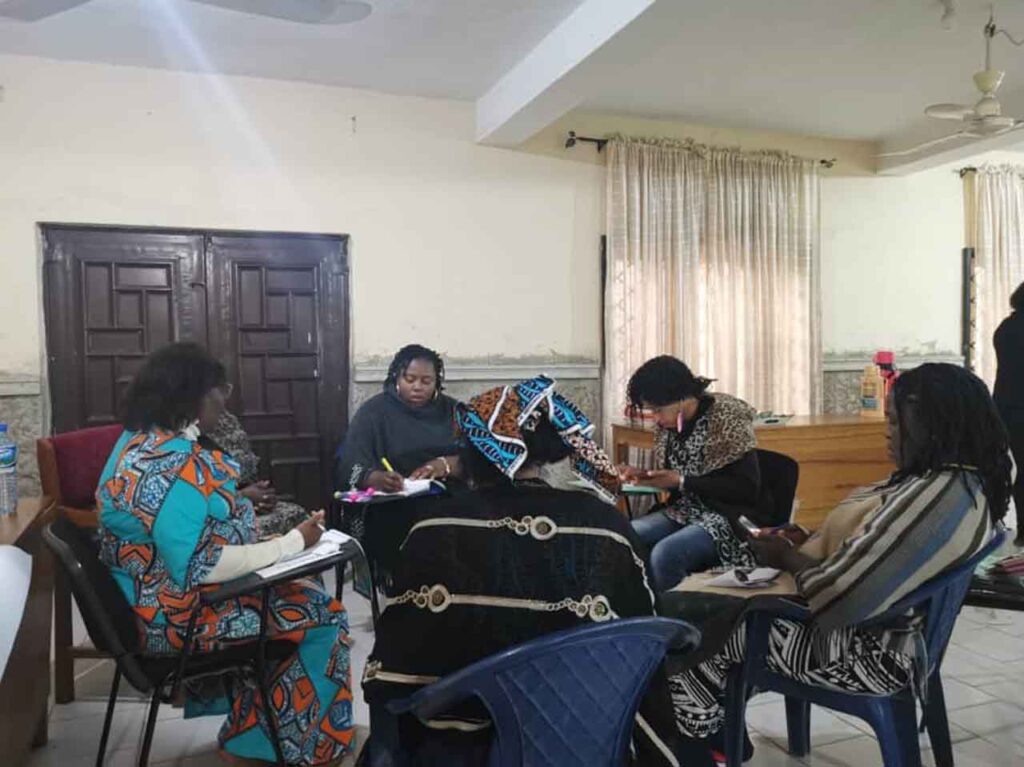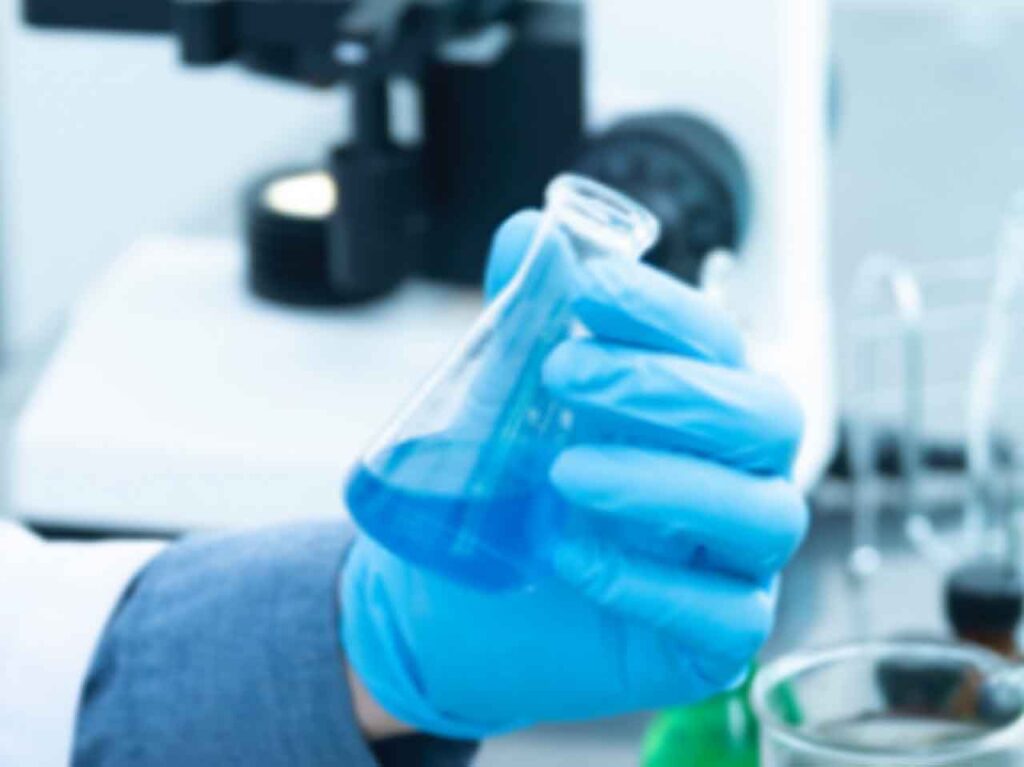OUR SERVICES

TRAINING
Our team of certified trainers provides trainings aligned with global evidence-based approaches to prevention, treatment, care, and sensitization (as developed and recommended by the UNODC). Through sensitization trainings, we aim to increase knowledge and awareness on drug-related issues, addressing a major barrier to treatment – stigma. We are particularly invested in developing drug education and prevention modules for school children and providing training for teachers, who are in the best capacity to implement these programs directly to children/adolescents.
DRUG SCREENING
As part of our preliminary assessments that ensure that our referrals are well-informed, we provide drug screening services to determine the specific drugs misused by individuals, the history of drug use, the frequency of use, as well as the risk of developing problems with current use pattern. This helps us make bespoke recommendations for appropriate interventions to our clients. To achieve this specific objective, we use toxicology screening, and World health organisation developed tools like The Alcohol, Smoking and Substance Involvement Screening Test (ASSIST), and Addiction Severity Index (ASI).


ADVOCACY
Our team comprises Recovering Drug Users, Legal Experts, representatives from community advisory boards, and Mental Health Professionals dedicated to shaping public policy about drug related issues. We aim to eradicate stigma while protecting the human rights of drug users. Our advocacy campaigns range from encouraging school managements to consider non-punitive approaches to handling drug-related cases, to targeting policymakers to institute favourable policies supporting sensitization, prevention, treatment, and care programs/projects.
RESEARCH
Our team, composed of multi/interdisciplinary experts and partners, conducts extensive research covering drug policy, healthcare, economic and criminal justice aspects of substance use, and emerging trends in substance misuse. Notably, between 2021 and 2023, we conducted a longitudinal study assessing the impact of COVID-19 among secondary school students and measuring the effectiveness of evidence-based prevention programs.

OUR REFERRAL SERVICES
Cognizant of the numerous barriers associated with treatment, including a lack of information on treatment availability, high treatment costs, and treatment inaccessibility, we have built the capacity to close this gap. We provide well-informed, guided, and tailor-made referrals based on the following criteria:

Nature of substance use disorder (SUD)
We understand that drug treatment need not adopt “a one-size fits all” approach, therefore, we take into consideration the peculiarity of the SUD, especially the history of mental health of the client and other socio-economic factors. We advise and recommend that clients with underlying psychiatric comorbidities be admitted into programs that employ the use of medication in the management of SUD’s; while individuals with religious inclinations are guided towards programs with strong spiritual components (like the Alcoholic/narcotics Anonymous). From our experience, individuals are more likely to comply with treatment when treatment is tailor made to suit their needs. This consequently yields favourable outcomes.
Financial capacity of clients
Prohibitive cost is a key barrier to drug treatment. Hence, we ensure that our clients are adequately informed about the options to explore, from Khirana and other mutual help - support groups (at no cost), to outpatient programs that are community based and residential facilities with abstinence-based programs.
Severity Index of SUD
Drug related problems may impede several domains of an individual’s life. Our referral services measure key problem domains by using preliminary assessment tools, to arrive at the specificity of treatment modalities that can attend to the multiple needs of the individual.
Proximity to treatment
Globally, availability and accessibility to treatment has posed great challenge to treatment over the years. We utilize our expanding database of treatment facilities with information on services, track record, and locations to ensure individuals or groups seeking help for drug-related problems are well-informed about available treatment options within reach.
GET IN TOUCH WITH US
We look forward to connecting with you.

Khirana healthcare and Social enterprise is an organization with an ambitious mission: to positively impact the lives of individuals in Sub-Saharan Africa affected by drugs and associated problems.
Follow Us
Main Office (Nigeria)
No. 17DB Gyang Close, Opp. Mees Palace, Rayfield, Jos-South, Plateau State, Nigeria.
Telephone
(+234)8105376836
South Africa Office
Neuroscience Research group, Room 120201, Department of human Physiology, Nelson Mandela University, South Campus, Port-Elizabeth, South Africa.
Telephone
+27827063654
Eswatini Office
Plot 223 Tubungu Farms Matsapha, M200 Manzini. Eswatini
Telephone
+26878124200, (+26879497524)
- © Copyright 2024
- khirana health care
- . All Rights Reserved.